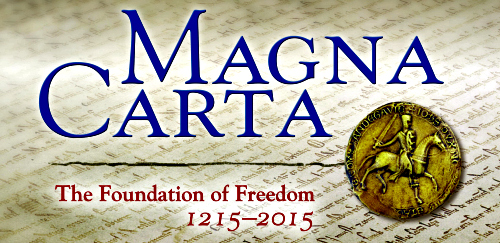It is time to say “Happy Birthday” to the Magna Carta. It has been 800 years since King John’s barons forced him to sign this document. It was meant to merely provide a short-term solution but became the foundation upon which English and American freedoms were built.
At the time it was merely a peace treaty that lasted a few months and only applied to a few people in the realm. But it established the key principle that everyone, including the king, was under the law.
It read: “To all free men of our kingdom, we have also granted, for us and our heirs for ever, all the liberties written out below, to have and to keep for them and their heirs, of us and our heirs.”
The Magna Carta also established the right of free men to justice and a fair trial. “No free man shall be seized or imprisoned, or stripped of his rights or possessions, or outlawed or exiled, or deprived of his standing in any way, nor will we proceed with force against him, or send others to do so, except by the lawful judgment of his equals or by the law of the land.”
Many of the principles of the Magna Carta can be found in the Bill of Rights of our Constitution. We can see that in the quote I just provided from the Magna Carta. Those rights are enumerated in the Sixth Amendment and the Eighth Amendment. The Magna Carta says that “no official shall place a man on trial . . . without producing credible witnesses.” This guarantee is found in our Fifth Amendment.
The Magna Carta protected free man from being deprived “of lands, castles, liberties or rights without the lawful judgments of his equals.” The Sixth Amendment guarantees us the right to a trial by an impartial jury. The Magna Carta says that “For a trivial offense, a free man shall be fined only in proportion to the degree of his offense.” The Eighth Amendment protects the accused from being fined an excessive amount for bail.
As you can see, the Magna Carta was an important foundational document for our freedoms. That is why we should wish it a Happy 800th birthday.
 Listen Online
Listen Online Watch Online
Watch Online Find a Station in Your Area
Find a Station in Your Area











 Listen Now
Listen Now Watch Online
Watch Online
